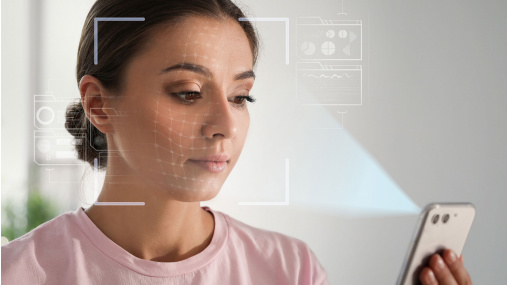NatWest trials voice banking in the UK
Customers will be able to use a Google Home to access their accounts

Sign up today and you will receive a free copy of our Future Focus 2025 report - the leading guidance on AI, cybersecurity and other IT challenges as per 700+ senior executives
You are now subscribed
Your newsletter sign-up was successful
NatWest has become the first high street bank in the UK to trial voice banking using artificial intelligence technology.
The banking giant will soon allow customers to log in to their bank account by speaking to a Google Home speaker, according to the Guardian.
Through a trial of the service, customers will be able to ask the smart speaker to read out basic information from their banking account. For example, they could ask for their balance, latest and pending transactions.
But if the trial goes well, customers could have access to even more advanced features in the future. NatWest confirmed that users may one day be able to transfer funds and pay bills using the system.
NatWest customers will be able to access their accounts via the service by saying aloud two digits of a four-digit password. To use the service, they must set up voice banking through an existing online banking account.
The bank intends to trial voice banking with 500 customers over the next three months, before evaluating the results and launching a wider rollout.
Speaking to the Guardian, NatWest claimed that the technology could be the biggest revolution in the financial services industry since the rise of mobile banking.
Sign up today and you will receive a free copy of our Future Focus 2025 report - the leading guidance on AI, cybersecurity and other IT challenges as per 700+ senior executives
Kristen Bennie, head of 'Open Experience' at NatWest, said: "We are exploring voice banking for the first time and think it could mark the beginning of a major change to how customers manage their finances in the same way mobile banking made a huge impact."
The scheme follows a trial between NatWest and RBS in March that saw the roll out of biometric bank cards to 200 customers, allowing them to verify transactions using a fingerprint.
While many people will no doubt be fine with online banking, voice banking could prove popular for people with disabilities and those that find it difficult to read from screens.
However, the announcement of the technology has raised legitimate concerns around security. Just last month, it emerged that Google contractors could listen to recordings from Google Assistant.
Technology analyst Paolo Pescatore told IT Pro: "Every vertical is looking at how technology and voice can revolutionise their businesses and add value for users.
"For sure, voice is a killer feature for users as it removes the complexity of accessing everyday tasks. However, this use case highlights potential security vulnerabilities. Some individuals will abuse the system by recording people's voices to access accounts or hack into recordings."
Nicholas Fearn is a freelance technology journalist and copywriter from the Welsh valleys. His work has appeared in publications such as the FT, the Independent, the Daily Telegraph, the Next Web, T3, Android Central, Computer Weekly, and many others. He also happens to be a diehard Mariah Carey fan. You can follow Nicholas on Twitter.
-
 Microsoft Copilot bug saw AI snoop on confidential emails — after it was told not to
Microsoft Copilot bug saw AI snoop on confidential emails — after it was told not toNews The Copilot bug meant an AI summarizing tool accessed messages in the Sent and Draft folders, dodging policy rules
-
 Cyber experts issue warning over new phishing kit that proxies real login pages
Cyber experts issue warning over new phishing kit that proxies real login pagesNews The Starkiller package offers monthly framework updates and documentation, meaning no technical ability is needed
-
 Leaked today, exploited for life
Leaked today, exploited for lifeWhitepaper How social media biometric patterns affect your future
-
 Aldi launches its first checkout-free store in London
Aldi launches its first checkout-free store in LondonNews The store uses facial age estimation technology provided by Yoti to verify the purchase of age-restricted products
-
 Facebook is shutting down its controversial facial recognition system
Facebook is shutting down its controversial facial recognition systemNews The move will see more than a billion facial templates removed from Facebook's records amid a push for more private applications of the technology
-
 EU privacy watchdogs call for facial recognition ban in public spaces
EU privacy watchdogs call for facial recognition ban in public spacesNews The EDPB and EDPS claim a ban is needed if we want to preserve our freedoms and create a human-centric legal framework for AI
-
 The pros and cons of facial recognition technology
The pros and cons of facial recognition technologyIn-depth There are plenty of pros and cons of facial recognition technology, but is it really worth risking user privacy in the name of efficiency and security?